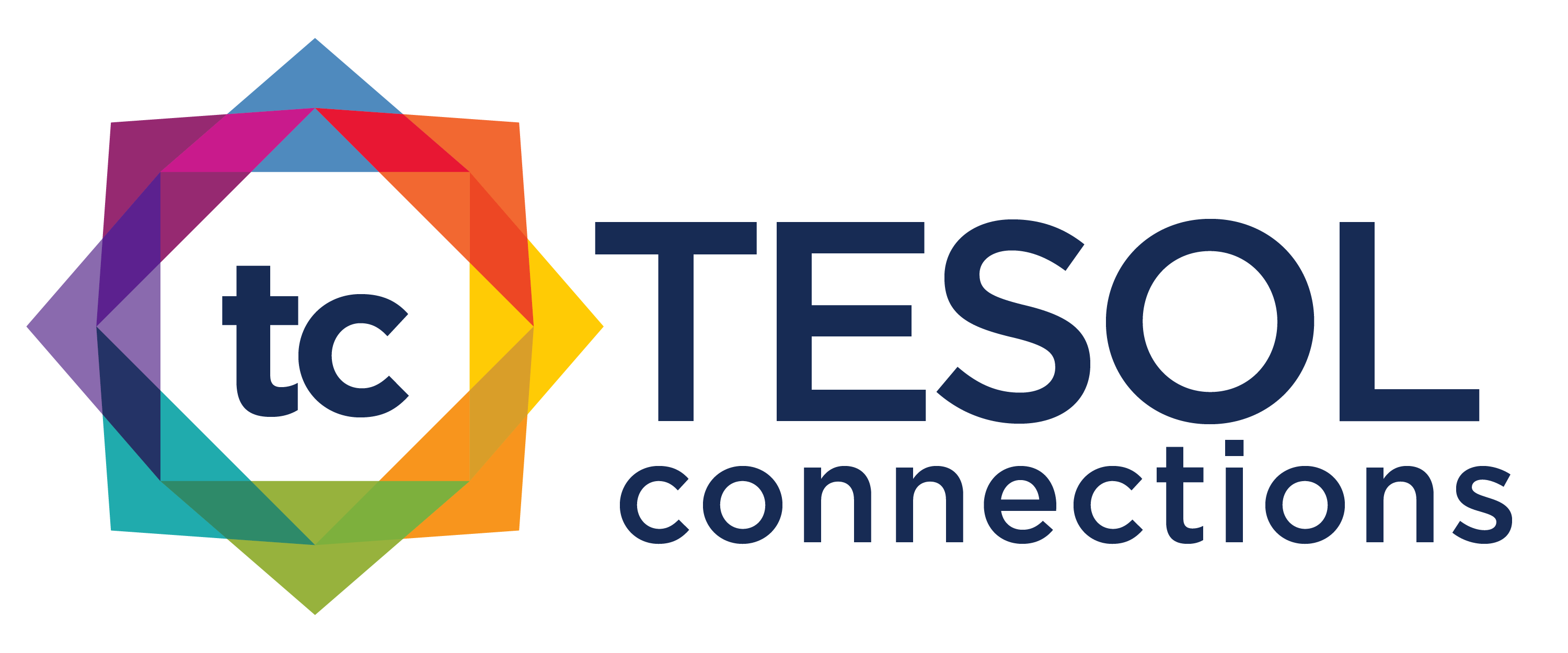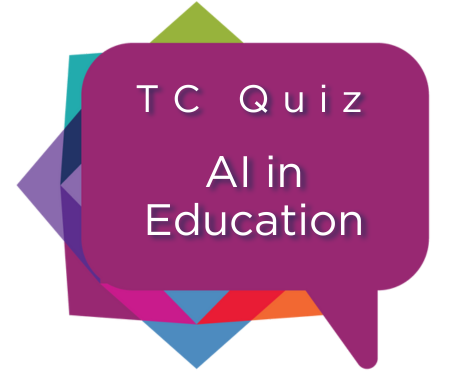KEEPING ENGLISH LANGUAGE PROFESSIONALS CONNECTED
TESOL Turkmenistan Conference Highlights Pedagogical and Digital Innovations
TESOL was pleased to partner with the U.S. Embassy in Ashgabat to support the first-ever TESOL Turkmenistan Conference in collaboration with the Turkmenistan Ministry of Education. Hosted by the International University for Humanities and Development (IUHD), the conference brought together 250 English language teaching (ELT) professionals from the capital city of Ashgabat and the five regions of Turkmenistan. This article shares an overview of the context for ELT in this plurilingual country and offers some highlights from the conference.
Turkmenistan: A Silk Road Country with a Rich History and a Gleaming Capital City
Turkmenistan, a mainly desert country located along the ancient silk road, is rich in culture and history. It has hosted numerous conquerors and empires throughout the centuries, including Alexander the Great, the Mongols, Turkic warriors, and eventually the Russian Empire and the Soviet Union. Turkmenistan boasts five UNESCO world heritage sites that illustrate the country’s past as a crossroads of civilizations, including the ancient Parthian Empire dating back to the 3rd century B.C.

The capital city of Ashgabat is known for its white marble-covered buildings, futuristic monuments, and tributes to its poets, philosophers, and leaders. Teachers and students can typically be observed during school hours wearing national dress, which features long green (K–12) or red (university) uniforms and embroidered hats for female students and black suits and ties with white shirts for males. Turkmen cultural motifs are emphasized throughout cities and institutions, with gold-leafed emblems and colorful handmade carpets featuring designs unique to the country’s regions and tribes.
Like its northern and eastern neighbors Kazakhstan and Uzbekistan, Turkmenistan gained its independence after the collapse of the Soviet Union in 1991. Iran and Afghanistan border Turkmenistan to the south, with the Caspian Sea composing the country’s entire western border. Turkmen, which is related to Turkish and other regional languages, is Turkmenistan’s official language. The population is predominantly Muslim, with the government of Turkmenistan maintaining a strict separation between religion and state.
An Increasing Priority on English Language Education
 The government of Turkmenistan has been increasingly prioritizing the English language in its educational system as Russian, Turkmenistan’s traditional linguistic gateway to the near abroad, declines in use throughout the country. English is now taught as a foreign language in many secondary schools and is a medium of instruction in select schools and universities. University programs also provide English for specific purposes and English teacher preparation programs. In addition, there is reliance on private language schools for English instruction. Teachers from each of these contexts were represented at the conference.
The government of Turkmenistan has been increasingly prioritizing the English language in its educational system as Russian, Turkmenistan’s traditional linguistic gateway to the near abroad, declines in use throughout the country. English is now taught as a foreign language in many secondary schools and is a medium of instruction in select schools and universities. University programs also provide English for specific purposes and English teacher preparation programs. In addition, there is reliance on private language schools for English instruction. Teachers from each of these contexts were represented at the conference.
With immersive English-speaking opportunities still rare throughout Turkmenistan, particularly in the country’s distant regions, the government of Turkmenistan welcomed TESOL representatives to visit and share professional resources, current trends in English language teaching, and digital innovations at the conference—and to engage in cultural and professional exchange with ELT colleagues in Turkmenistan. It is the first time that the association has partnered to deliver a program there, and our Turkmen ELT colleagues were eager to learn new ideas and share some of their own.
A Successful Conference Breaks New Ground in English Teaching Methods and Resources
The 2024 TESOL Conference, “New Language Learning Technologies and Innovations in Education,” was held from January 8-12. Over 250 ELT professionals from across the country gathered to attend keynotes and workshops facilitated by international presenters. For many local ELT professionals, this was their first experience at an event of this kind in their teaching careers. Teachers commonly shared that they wished they had the opportunity to attend every session. For the visiting TESOL presenters as well, this was a rare opportunity for learning and cultural exchange.

Unlike traditional TESOL conferences, which feature peer-reviewed sessions selected from a proposal process, the conference presentations and workshops were facilitated entirely by invited speakers. Each day featured a keynote, two workshops, and a breakout session, with a different thematic strand each day. TESOL authors Jan Edwards Dormer and Luis Javier Pentón Herrera were featured keynote speakers, and staff member Heidi Faust attended as a representative of TESOL and as an English Language Specialist sponsored by the Department of State Office of English Language Programs.
 The keynote speakers also provided four workshops throughout the week that were repeated twice. TESOL representatives were joined in these workshops by U.S. English language fellows and specialists, the U.S. Embassy in Ashgabat’s Regional English Language Officer, and a Turkmen teacher from the American International School. TESOL collaborated to support the development of the keynote and workshop topics based on areas of interest identified by the Turkmenistan Ministry of Education and U.S. Embassy officials. Local English language students volunteered at the conference and served as facilitators for the rooms and cultural liaisons for the speakers.
The keynote speakers also provided four workshops throughout the week that were repeated twice. TESOL representatives were joined in these workshops by U.S. English language fellows and specialists, the U.S. Embassy in Ashgabat’s Regional English Language Officer, and a Turkmen teacher from the American International School. TESOL collaborated to support the development of the keynote and workshop topics based on areas of interest identified by the Turkmenistan Ministry of Education and U.S. Embassy officials. Local English language students volunteered at the conference and served as facilitators for the rooms and cultural liaisons for the speakers.
The conference theme focused on modern trends in ELT and innovations including digital technology integration and online learning. TESOL keynote speaker Jan Dormer started the conference off with an overview of key factors influencing modern TESOL methodologies. Luis Pentón Herrera built on those key ideas as he led attendees to explore aspects of technology integration, drawing on his own experiences entering the digital world. Heidi Faust led a breakout session on TESOL’s 6 Principles for Exemplary Teaching of English Learners, followed by a closing keynote address which highlighted the importance of participation in communities of practice and the role of making contributions to the field as an aspect of professionalism in TESOL.
Teachers were energized by sessions related to artificial intelligence, STEM, online teaching and learning, learner-centered communicative language teaching, post-methods approaches, and creative teaching practices. Attendees explored ideas for teaching in low-resource contexts, discussed assessment types and tools, and engaged in small group and pair discussions of how those ideas might change when implemented in their classrooms.

Eager for interaction, shared learning, and professional exchange, teachers discussed how they can continue their professional development and eventually contribute to the field locally and globally. One of our key roles as a professional association is to support the communities of practice that help us grow professionally and to provide a venue for contributions to the field. Our interactions with our Turkmen colleagues raised many interesting questions about what this looks like across diverse locations and cultural expectations.
 TESOL representatives hope that this collaborative conference may open the door to more events of its kind. We further hope that local ELT professionals will have opportunities to present their teaching practices to each other in future conference iterations and to inform the work of ELT colleagues in other contexts. Finally, we look forward to learning about how our Turkmen colleagues, as experts in their rich and particular context, will continue advancing ELT practices locally—and about how new ideas learned at the conference will translate to real students and classrooms.
TESOL representatives hope that this collaborative conference may open the door to more events of its kind. We further hope that local ELT professionals will have opportunities to present their teaching practices to each other in future conference iterations and to inform the work of ELT colleagues in other contexts. Finally, we look forward to learning about how our Turkmen colleagues, as experts in their rich and particular context, will continue advancing ELT practices locally—and about how new ideas learned at the conference will translate to real students and classrooms.
Reference
Allworth, E., Hambly, G.R.G., Sinor, D., Smith, D.R., & Zhmuida, V.B. (2024). Turkmenistan. Encyclopedia Britannica. https://www.britannica.com/place/Turkmenistan
Also In This Issue
‣ Literacy Essentials for K–3 Multilingual Learners
‣ Spotlight on the 2024 TESOL Teacher of the Year: Luis Javier Pentón Herrera
‣ PD Corner: AI Ethics: Empowering Educators to Foster Responsible Use
‣ Free TESOL Journal Article: "Learning English Through Manga (Japanese Comic Books)"
Recent TESOL Blogs
‣ 5 Ways to Supercharge Your TESOL 2024 Experience
‣ 30% Happier: The Joys of Biophilia for TESOL Teachers and Their Students
‣ 3 Ways to Use AI for Listening Activities


About the author
Heidi Faust
Heidi Faust, PhD, is the Grants, Projects, and Partnerships Officer at TESOL International Association, overseeing international ELT capacity-building programs and professional learning partnerships. She has recently led projects in India, Uzbekistan, Peru, the Dominican Republic, and Turkmenistan, and has developed and facilitated online and in-person professional learning programs with teachers from more than 100 countries. Heidi is also an English language specialist for the U.S. Department of State, and she has taught multilingual learners of English from primary to adult.